

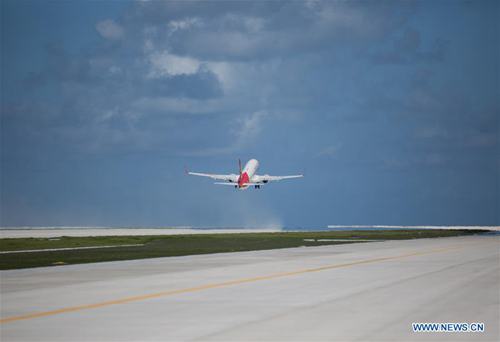 |
| A civilian aircraft takes off at the airfield on Yongshu Jiao in the Nansha Islands, Jan. 6, 2016. |
Vietnam recently responded with outrage to China’s inspection and test flights to the newly built airport on Yongshu Jiao in the Nansha Islands. The negative reaction, however, is groundless.
With regards to the accusations, the spokesperson of the Vietnamese Foreign Ministry first lodged opposition, and the director of the Vietnamese Civil Aviation Authority then said that Vietnam had sent letters of protest to China and the International Civil Aviation Organization (ICAO).
In those letters, Vietnam claimed that Chinese aircraft have ignored all the rules and norms of the ICAO by flying across Vietnam's airspace over the South China Sea without providing flight plans or maintaining radio contact with Vietnam's air traffic control center, which threatens regional air safety.
The letters also claimed that they had recorded 46 instances of Chinese planes flying without warning through that area from Jan. 2 to 8.
China was then further shamed when the American, Japanese and other foreign media all expressed their concerns about the South China Sea situation.
However, if the truth is viewed objectively, those accusations, though seemingly substantial, do not in fact hold water.
First of all, it is Vietnam that did not respond to China’s notifications. The Chinese Flight Inspection Center of the Civil Aviation Administration informed the Ho Chi Minh Flight Information Region of the flight plan and other technical information concerning China's inspection aircraft in accordance with relevant regulations and international practices on Dec. 28, 2015. However, the Vietnamese side has yet to give any response.
Two days later, the Chinese side also made specific contact with Vietnamese diplomatic authorities for technical notification and explanation. All these contacts are verifiable.
Even more important, China has indisputable sovereignty over the Nansha Islands and their adjacent waters. The aforementioned activities fall completely within China's rights; China has every right to perform legitimate test flights.
Moreover, as a major international power, China always adheres to protocol and international rules. When Vietnam deliberately neglected to respond, the Chinese government decided that the flights would be conducted by civil aircraft as state aviation activities to ensure the safety and effectiveness of the inspection and test flights.
As stipulated by international law, state aviation activities, which are not bound by the Convention on International Civil Aviation and relevant ICAO regulations, are within sovereign states' independent hands to operate.
Therefore, all operations carried out by the Chinese side are legal, and Vietnam has no reason to complain.
Lastly, China’s construction on the islands is intended to provide beneficial infrastructure. The airport can offer more convenient transportation for personnel exchanges, emergency aid and maritime search and rescue in the region.
Vietnam‘s actions, on the contrary, serve only to escalate tension in the South China Sea and ultimately pose a threat to regional security.
What is hiding behind the groundless accusations is Vietnam’s intention to undermine China’s interests.
In recent years, Vietnam has repeatedly challenged China’s bottom line on the South China Sea issue. These are serious misjudgments that have damaged China-Vietnam ties and threaten peace and stability in the South China Sea region.
In order to prevent the disputes from affecting the big picture of bilateral ties, Vietnam should put an end to its unreasonable behavior.
Vietnam has to realize that it is only through friendly negotiation and dispute management that the South China Sea issue can finally be resolved.
The article is edited and translated from 《永暑礁试飞正当合法 越南指责是无事生非》. Source: People's Daily Overseas Edition. The author is the Deputy Director of the Department for International and Strategic Studies at the China Institute of International Studies.
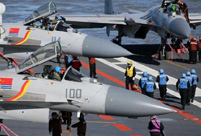 Getting close to the crew on China's aircraft carrier
Getting close to the crew on China's aircraft carrier A beauty's dancing youth
A beauty's dancing youth Chinese stewardess celebrate test flight at Nansha Islands
Chinese stewardess celebrate test flight at Nansha Islands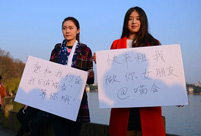 "Rent me as your girlfriend!"
"Rent me as your girlfriend!" World's first 'underwater skyscraper'
World's first 'underwater skyscraper' 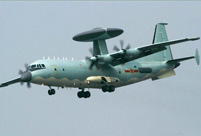 Top 10 weapons in the world in 2015
Top 10 weapons in the world in 2015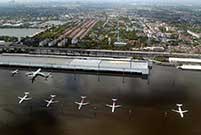 Are these the world’s scariest landing strips?
Are these the world’s scariest landing strips? In pics: Left behind children in China
In pics: Left behind children in China Eight modern day engineering marvels of China
Eight modern day engineering marvels of China Top 20 hottest women in the world in 2014
Top 20 hottest women in the world in 2014 Top 10 hardest languages to learn
Top 10 hardest languages to learn 10 Chinese female stars with most beautiful faces
10 Chinese female stars with most beautiful faces China’s Top 10 Unique Bridges, Highways and Roads
China’s Top 10 Unique Bridges, Highways and Roads Fake is out, real is in
Fake is out, real is in Eyes on the Golden Globes
Eyes on the Golden Globes Questions arise about daigou trade
Questions arise about daigou trade Parents reject fines for kids born before policy change
Parents reject fines for kids born before policy changeDay|Week